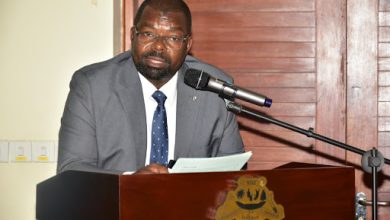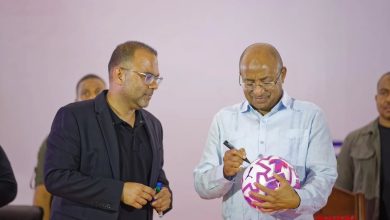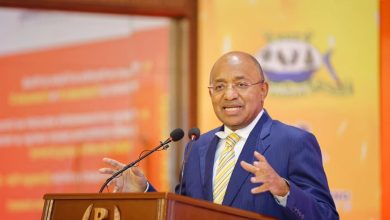Uzi Island’s long-awaited bridge to Zanzibar opens

ZANZIBAR: IN the southern region of Unguja, residents of the island village of Uzi are witnessing a historic transformation, one that promises to change their lives forever. For decades, this small island, home to just over 3,000 people, was accessible only by boat or by foot during low tide.
But now, the government of Zanzibar, under the leadership of President Dr Hussein Ali Mwinyi, is constructing a modern bridge to finally link Uzi to Unguja Ukuu and the rest of the country.
The 8.7-kilometre road (and a bridge) project, built by the China Civil Engineering Construction Corporation at a cost of 37bn/-, is expected to be completed by December this year. More than a major infrastructure project, it is being hailed as a symbol of visionary leadership and a long-awaited relief for a community that has felt isolated for generations.
For President Mwinyi, known for his “actions over words” leadership style, the bridge is part of a wider agenda to fulfill the promises made during his first term in office. As he approaches the end of his initial five-year term, many citizens see him as a leader delivering real, tangible change.
“This bridge proves that President Mwinyi is a man of his word,” said Mr Badru Aboud Salum, a farmer from Uzi. “For over 60 years since the Revolution, no one seriously imagined we would one day have a high-level bridge linking our island to the mainland.”
Aboud explained that the bridge not only improves access to Unguja Ukuu, but effectively connects Uzi to the entire nation. For residents who rely on fishing and farming, the improved transport network will boost economic activity and ease daily challenges, especially the long waits for the tide to go down before traveling.
He recalled childhood memories of being carried on a bicycle and loaded onto a makeshift boat called a “susu” to reach the nearest health facility in Unguja Ukuu. “Those days are gone,” he said. “With the bridge and the upcoming upgrade of our health centre, Uzi is stepping into the future.”
Elderly resident Ms Mwatum Ronga Khamis, 78, a lifelong political activist, described President Mwinyi as “a saviour blessed by GOD,” echoing the sentiment that he is the right successor to the legacy of the late Abeid Amani Karume.
“He [Karume] laid the foundation for development to save us from hardship. And now, President Mwinyi is fitting perfectly into his shoes,” she said with emotion.
ALSO READ: Zanzibar sees fortune in mobile soil testing initiative
Though she is unsure whether she will live to see the completed bridge, Ms Mwatum said she finds peace knowing her children and grandchildren will benefit from what she calls a “dream come true.”
Ms Mwanakhamis Juma Ramadhan, 48, also born and raised on Uzi, expressed gratitude to the current government for addressing the daily difficulties caused by the tide. “Sometimes, you leave for a funeral or a meeting outside Uzi and return to find the tide has risen. You’re stuck until the water recedes,” he said.
Although small fibre boats now ferry people across for a fee of TZS 1,000/-, many residents see the upcoming bridge as a permanent, more reliable solution.
Women, especially expectant mothers, have faced serious risks. “There have been cases of women giving birth in cars or boats while being rushed to the hospital,” said Mr Hassan Rashid Juma, a 29-year-old driver. “Sometimes patients don’t make it in time. It’s heartbreaking.”
The poor condition of the current road, once rocky and prone to flooding, has also taken a toll on vehicles. Drivers frequently complain about breakdowns and high maintenance costs. Mr Juma praised the President as a leader who truly understands the people’s pain. “I pray he returns for another term. He deserves it,” he said.
Schoolteachers have also struggled for years. Mr Omar Shaaban Omar, head teacher at Uzi Primary School, likened the new bridge to “a spring in the desert.” Many of his staff commute from outside Uzi and often have to leave before completing the school day to avoid getting stranded by the tide.
“This bridge is not just a road, it’s freedom for the education sector here,” he said.
Ms Mwashamba Kassim, 47, a recently transferred teacher from Unguja Ukuu, said daily travel has been exhausting. “Even when the tide is low, the bumpy ride is difficult, especially for older teachers like me. We thank the President for carrying our burdens,” she added.
Beyond easing daily life, many believe the bridge will unlock new opportunities, especially in tourism, a key pillar of Zanzibar’s blue economy. However, locals urge caution. “Yes, we expect more visitors, but our culture and values must be protected,” said Mr Yahya Kombo Hassan. “Development should not come at the cost of our identity.”
He called on the government and tourism stakeholders to enforce clear guidelines to prevent cultural erosion, especially as land sales and outside interest in Uzi begin to rise.
Uzi Sheha (local leader) Mr Othman Mwinyihaji Othman echoed the concern, suggesting the future implementation of a toll gate or barrier to control access and protect local customs. “We welcome development, but we must also protect our way of life.”
He also urged local residents to take ownership of the new infrastructure, warning against misuse or damage. “Let’s guard this blessing together,” he concluded.
As construction advances steadily, the people of Uzi see the bridge not just as concrete and steel, but as a longoverdue recognition of their place in Zanzibar’s future, a lifeline, a legacy, and a lasting link to prosperity.





